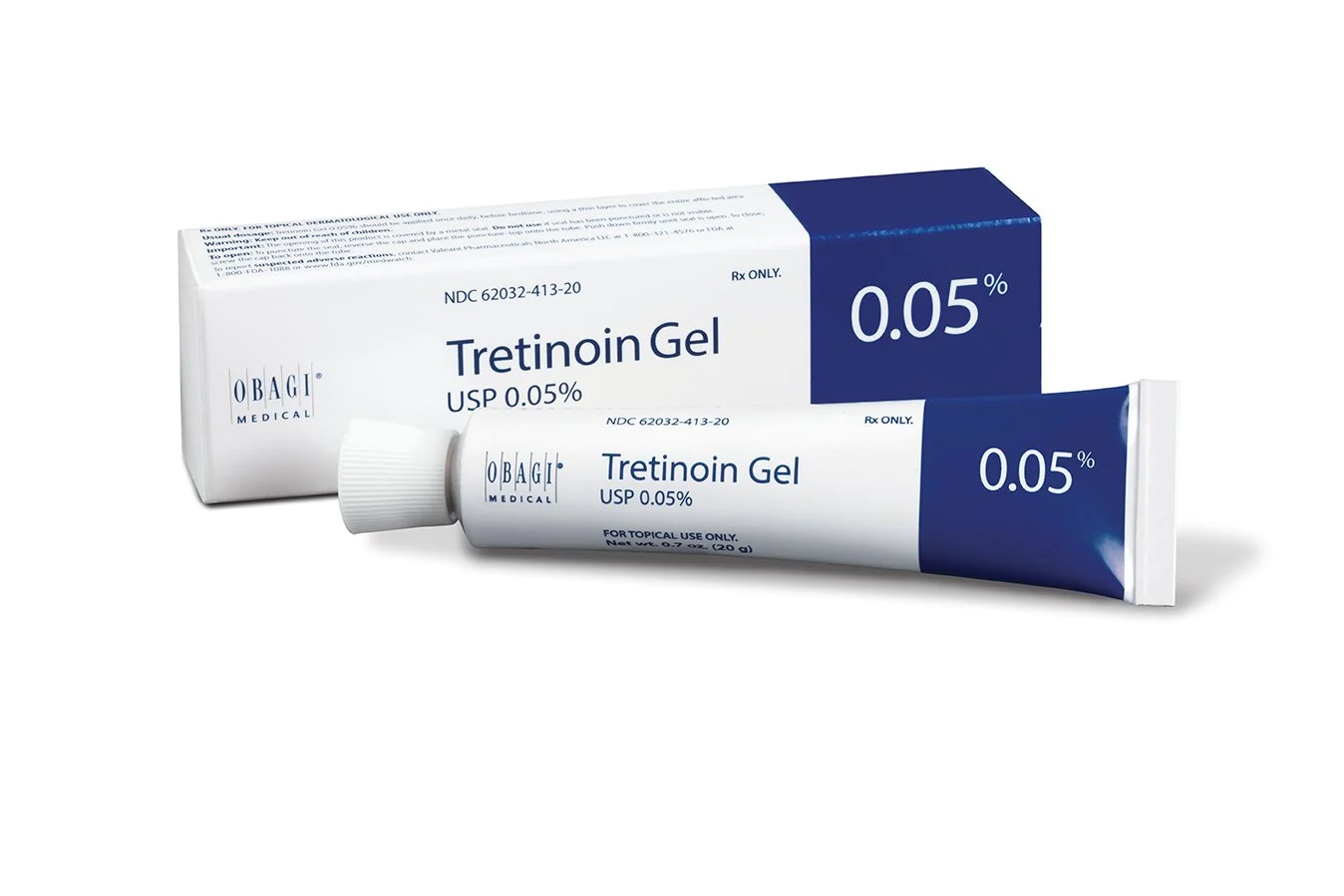Topical retinol (retinoic acid) improves fine wrinkles associated with sun damage.5
This happens because retinol causes the skin to thin the outermost dead layer, allowing fresh new cells to replace dull, damaged ones.
To reap the benefits, it’s important to use retinol every other night at first and increase frequency gradually.
Acne Treatment
Known as the “gold standard” of topical treatments, tretinoin’s effectiveness in boosting skin cell turnover is what makes it an anti-aging powerhouse. This boost helps treat acne, unclog pores (one of the causes of acne breakouts), reduce the appearance of fine lines, even skin tone and diminish dark spots caused by sun damage.
Tretinoin does this by speeding up the life cycle of skin cells, which means dead skin cells are sloughed off faster and newer cells take their place. Those new cells help to unclog pores, fight breakouts, lighten the appearance of scars and promote collagen production.
To get the best results from tretinoin, you need to use it regularly, typically every evening. It’s important to start slow with a low concentration formula and work your way up, especially if you have sensitive skin. The more your skin adjusts, the better it will tolerate tretinoin. It’s also a good idea to avoid using any other active ingredients that could irritate your skin while you’re using tretinoin.
Anti-Aging
Retinol is a supercharged skincare active that smoothes out fine lines and wrinkles, evens out skin tone and texture, reduces age spots and discoloration, and visibly shrinks pores. It’s an effective anti-aging ingredient, and is especially beneficial for reducing fine lines in the forehead and cheeks where sun damage tends to show up first.
It also helps lighten dark spots and prevent new ones from forming. It’s proven to reduce and even reverse wrinkles when used in the teen years and early twenties, but it’s never too late to start using it.
To apply tretinoin, use the smallest amount possible (a pea-sized drop of cream or gel) and spread evenly over your face. Be careful not to get tretinoin on your lips, nose or areas close to the eyes. You can always add more if needed, but too much can irritate the skin. It’s best to start with a low concentration and ramp it up to a higher dose nightly as tolerated.
Wrinkle Reduction
Retinoids help even skin tone and reduce fine lines, and have been shown to be highly effective in treating wrinkles. They also shrink oil glands and block inflammatory pathways that lead to acne, Dr. Kormeili says.
Topical tretinoin (retinoic acid) improves wrinkles and other signs of photodamage in human skin, although histologic changes do not explain this improvement.5
Tretinoin stimulates the proliferation of epidermal cells and the synthesis of collagen, thus improving elasticity and firmness of the skin. In addition, it helps to lighten the discoloration caused by scarring or sun damage.
Long-term studies of tretinoin have shown that it is an effective anti-aging agent, especially in patients with sun damage. It is important to follow the application guidelines and avoid exposing your skin to sunlight while using tretinoin. Tretinoin can also irritate the skin, so it is recommended to use it under the supervision of your dermatologist. Most patients see results within three months, and the effects are maintained over 6 months of continued use.
Skin Brightening
Tretinoin can even skin tone by dispersing melanin granules, which is why many patients with melasma see fading of their dark spots with tretinoin use. Melasma is typically caused by sun exposure, certain medications or hormone changes.
It may take a few weeks for your skin to get used to the tretinoin, so start out with a low concentration and ramp up as tolerated. You should also wear sunscreen daily when using tretinoin, as it can make your skin more sensitive to sunlight.
Tretinoin can help to smooth fine lines, improve skin sallowness and roughness as well as enhance collagen levels. It’s an excellent treatment for anyone who wants more youthful and radiant looking skin. However, the risks of tretinoin usage are significant, so it’s always important to consult a dermatologist before starting any new treatments or prescription skin care products.Tretinoin for Collagen







Leave a Reply